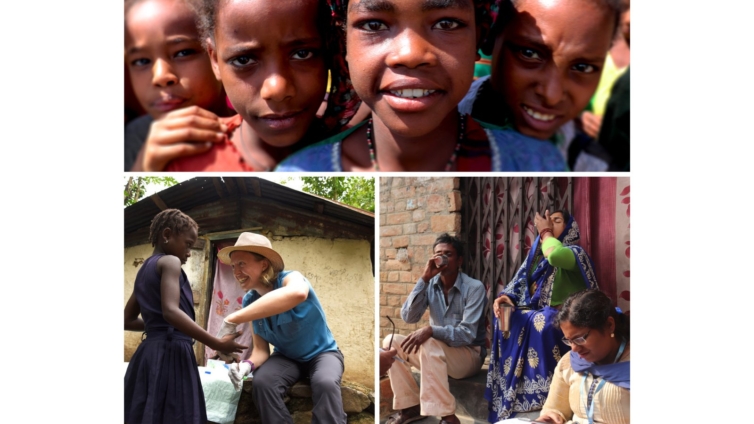The United States Agency for International Development (USAID), has awarded the Task Force for Global Health (TFGH) with a $45 million cooperative agreement titled ‘Ending Tropical Diseases through Operational Research’ (ENDOR).
The goal of the award is to address operational challenges, improve NTD diagnostics, and tackle other programmatic issues through an operational research (OR) portfolio.
“We are deeply honored to receive the ENDOR Cooperative Agreement from the U.S. Agency for International Development,” said Dr. Patrick Lammie, Director of the Neglected Tropical Diseases Support Center at The Task Force for Global Health.
“This award represents an important step forward in USAID’s ambitious agenda to help control and eliminate NTDs and underscores the importance of operational research in achieving sustainable solutions.”
The TFGH will partner the African Research Network for NTDs (ARNTD) and the Kwame Nkrumah University of Science and Technology (KNUST), Kumasi, Ghana as a major sub-partner in implementing the objectives of ENDOR.
“This award is a momentous milestone for ARNTD and the continent’s researchers, who will be directly contributing their research knowledge to helping meet the targets of the NTD 2030 roadmap,” said Dr John Amuasi, Director of ARNTD.
“This partnership with Task Force allows us to rope in more African researchers, improve our reach towards the bottom billion, and deliver sustainable evidence-based solutions,” he explained.
The five-year award aims to support national governments, local research organizations, non-governmental organizations (NGOs), implementing partners, and developers of neglected tropical disease (NTD) diagnostics.
Although the award will primarily focus on supporting countries in sub-Saharan Africa, the scope of ENDOR will be global.
It will provide research opportunities for all national programmes targeting the five neglected tropical diseases (NTDs) currently supported by USAID: lymphatic filariasis, blinding trachoma, onchocerciasis, schistosomiasis, and three types of intestinal worms (soil-transmitted helminths).
Latest Stories
-
The Great ECG Container Heist: A Comedy of Errors
7 minutes -
Re: Petition against Justice Gabriel Scott Pwamang JSC
59 minutes -
Starmer and Trump discuss ‘productive negotiations’ on economic deal
3 hours -
Napoli beat AC Milan to keep pressure on Inter
3 hours -
Rare Roman coin fetches nearly £5,000 at auction
3 hours -
MTN FA Cup: Kwame Opoku’s late strike sends Kotoko through to semifinals
3 hours -
Why British boarding schools are so eager to open in Nigeria
3 hours -
Usher opens 10-night London residency, with mixed results
3 hours -
Chair of charity Harry quit calls prince’s brand ‘toxic’
3 hours -
More Myanmar quake survivors pulled from rubble
4 hours -
Trump ‘very angry’ with Putin over ceasefire negotiations
4 hours -
Trump says he ‘couldn’t care less’ about higher car prices
4 hours -
UK prepared to retaliate against US tariffs, No 10 sources say
4 hours -
Former GPHA boss questions ECG missing containers scandal
5 hours -
Narrow escape for driver, mate as vehicle overturns with goods at Kabampe
5 hours

